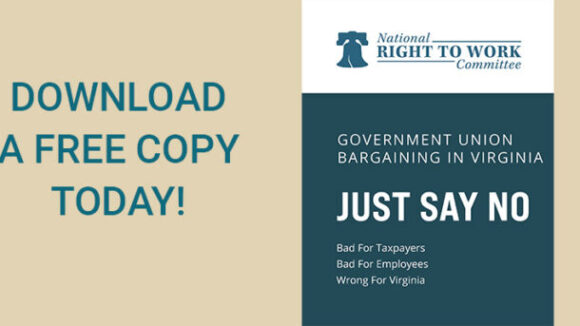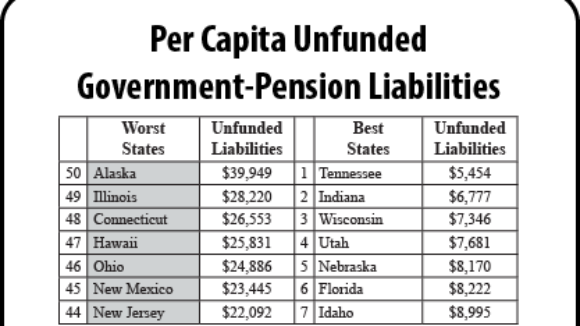In the wake of Detroit’s entry into Chapter 9 bankruptcy last December and serial municipal bankruptcies in California since 2008, more and more Americans have a basic understanding about the detrimental impact monopolistic government unionism routinely has on public finances and taxpayers.
However, relatively few citizens understand how unionized city, county and state pensioners as well as taxpayers and municipal creditors are often victims of Big Labor malfeasance.
Recently, Walter Mead, editor-at-large of the American Interest, was interviewed by Adam Shapiro of Fox Business News regarding what he refers to as a “kind of conspiracy” that is often formed among elected and appointed government officials and union bosses. (See the link below for the video and a transcript.)
As Mead explains, union chiefs who benefit from state laws and executive orders handing them the power to act as the “exclusive” bargaining agents for public servants on matters concerning their pay, benefits, and work rules frequently do not put the interests of forced dues-paying members first during contract negotiations. To make themselves look good and enhance their job security, government union chiefs often push for “big pension raises” that cost no money up front, but typically do not follow up by actually ensuring that Big Labor politicians put aside enough money to ensure that union-“represented” workers “actually get this pension.”
According to Mead, this is, to a very large extent, how the bankruptcies in Detroit and several California cities came about:
[T]he union [officials], if they really had the interests of their members at heart, should be arguing for very, very conservative calculations here, and forcing, they’re representing the workers, force those politicians to put enough money into the system so that the members’ pensions will be 100% secure. They don’t do it. They actually collude with this idea of assuming these very high rates of return, which then mean that the pensions actually turn out, in many cases, not to be adequately funded.
Of course, hiking taxes to a level high enough to pay for the promises extracted from politicians by government union bosses is not a realistic option, because voters will “simply refuse to pay higher taxes so that bureaucrats can enjoy lifetime tenures and secure pensions.”
U.S. jurisdictions in which government union monopoly bargaining is not legally authorized or actually prohibited are hardly fiscal utopias, but in general elected officials and their appointees in such jurisdictions face substantially less Big Labor pressure to make unrealistic promises about public employee retirement benefits. Consequently, the fiscal problems faced by states with longstanding Right to Work laws and their municipalities are likely, with few exceptions if any, to be manageable without major political disruptions. That’s not the case in the areas of the country where monopolistic government unions are strongest. At the conclusion of the interview, Mead considered the choices Big Labor-controlled metropolises like New York City now face:
Deferring pension costs and deferring infrastructure repairs are part of the same kind of: let’s make everything look bright and pretty today, let’s not worry about tomorrow, but also as time goes on and those large pension bills come due, and as the infrastructure is aging, politicians and voters are going to be looking at what do we do. Tax everybody enough to pay for all of this stuff, in which case you would basically destroy the city’s economy, and we destroy everybody’s standard of living, or do we sacrifice the pensions to the infrastructure or the infrastructure to the pensions? This is going to be very ugly.
Largely to spare voters and elected officials from having to make such terrible choices, the National Right to Work Committee has fought for roughly four decades against the spread of union monopoly bargaining in government. Now that the dire consequences of this system for workers as well as taxpayers are becoming more and more apparent, it may be possible to roll it back even in states like New York, California, and Illinois over the course of the next decade.
Walter Mead On Public Pensions And Municipal Bankruptcies


